Recent Blog Posts
Understanding Scott's Law Violations in Illinois: Penalties and Defenses in 2025
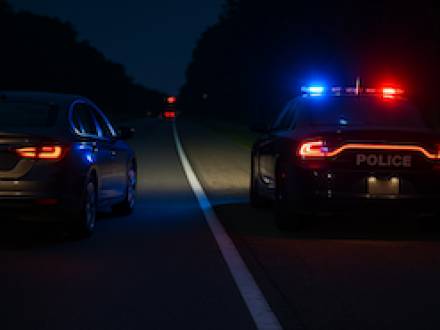 Scott's Law, also known as Illinois' Move Over Law, is designed to protect emergency responders on the roadside, but violations can lead to significant fines, license suspensions, and even criminal charges. As a Joliet criminal defense attorney and former Will County prosecutor with over 20 years of criminal law experience, I've defended numerous clients in Will County against these tickets, which often arise during traffic stops or accidents involving police, fire, or tow vehicles. Under 625 ILCS 5/11-907(c), drivers must slow down and change lanes when approaching stationary emergency vehicles with flashing lights—if you fail to do so, you could face escalating penalties, especially if causing injury or damage. In 2025, with recent legislative updates like HB3601 increasing fines and enforcement, understanding the law is crucial to avoid long-term impacts on your driving privileges, insurance rates, and criminal record, particularly if tied to DUI or reckless driving cases.
Scott's Law, also known as Illinois' Move Over Law, is designed to protect emergency responders on the roadside, but violations can lead to significant fines, license suspensions, and even criminal charges. As a Joliet criminal defense attorney and former Will County prosecutor with over 20 years of criminal law experience, I've defended numerous clients in Will County against these tickets, which often arise during traffic stops or accidents involving police, fire, or tow vehicles. Under 625 ILCS 5/11-907(c), drivers must slow down and change lanes when approaching stationary emergency vehicles with flashing lights—if you fail to do so, you could face escalating penalties, especially if causing injury or damage. In 2025, with recent legislative updates like HB3601 increasing fines and enforcement, understanding the law is crucial to avoid long-term impacts on your driving privileges, insurance rates, and criminal record, particularly if tied to DUI or reckless driving cases.
Defending Against Drug Possession Charges in Illinois: Strategies and Outcomes in 2025
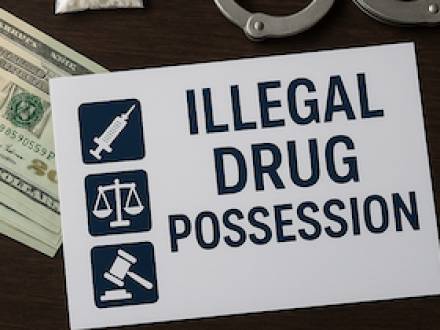 Drug possession charges in Illinois can have life-altering consequences, ranging from misdemeanors to felonies depending on the substance and quantity involved. As a Joliet criminal defense attorney with over 20 years of experience, including as a former Will County prosecutor, I've successfully defended clients against these charges in Will County courts, often reducing penalties or securing dismissals. In 2025, Illinois law under 720 ILCS 570/402 continues to classify possession of small amounts of cannabis (up to 30 grams) as a civil violation with fines, while harder drugs like cocaine, heroin, or methamphetamine start as Class A misdemeanors (up to 1 year jail, $2,500 fines) and escalate to Class 1 felonies for larger quantities (4-15 years prison, $25,000 fines). With ongoing cannabis legalization nuances and stricter enforcement on fentanyl-laced substances, understanding defenses is key to avoiding jail, probation, mandatory treatment, license suspension, and a criminal record that impacts employment and housing.
Drug possession charges in Illinois can have life-altering consequences, ranging from misdemeanors to felonies depending on the substance and quantity involved. As a Joliet criminal defense attorney with over 20 years of experience, including as a former Will County prosecutor, I've successfully defended clients against these charges in Will County courts, often reducing penalties or securing dismissals. In 2025, Illinois law under 720 ILCS 570/402 continues to classify possession of small amounts of cannabis (up to 30 grams) as a civil violation with fines, while harder drugs like cocaine, heroin, or methamphetamine start as Class A misdemeanors (up to 1 year jail, $2,500 fines) and escalate to Class 1 felonies for larger quantities (4-15 years prison, $25,000 fines). With ongoing cannabis legalization nuances and stricter enforcement on fentanyl-laced substances, understanding defenses is key to avoiding jail, probation, mandatory treatment, license suspension, and a criminal record that impacts employment and housing.
Understanding Aggravated DUI Charges in Illinois: Penalties and Defenses in 2025
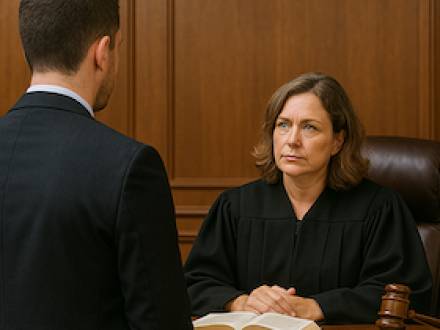 Facing an aggravated DUI charge in Illinois can drastically alter your life, with severe penalties that go beyond standard DUI offenses. As a Joliet criminal defense attorney with over 20 years of experience, including as a former Will County prosecutor, I've defended clients against these escalated charges in Will County courts. In 2025, Illinois law under 625 ILCS 5/11-501 defines aggravated DUI as a felony when factors like repeat offenses, high BAC (over 0.16%), causing injury, or driving with a suspended license are involved. This elevation from misdemeanor to felony increases the stakes, potentially leading to prison time, hefty fines, and long-term license revocation. Understanding these charges is essential for building a robust defense to mitigate outcomes like extended jail sentences or permanent criminal records.
Facing an aggravated DUI charge in Illinois can drastically alter your life, with severe penalties that go beyond standard DUI offenses. As a Joliet criminal defense attorney with over 20 years of experience, including as a former Will County prosecutor, I've defended clients against these escalated charges in Will County courts. In 2025, Illinois law under 625 ILCS 5/11-501 defines aggravated DUI as a felony when factors like repeat offenses, high BAC (over 0.16%), causing injury, or driving with a suspended license are involved. This elevation from misdemeanor to felony increases the stakes, potentially leading to prison time, hefty fines, and long-term license revocation. Understanding these charges is essential for building a robust defense to mitigate outcomes like extended jail sentences or permanent criminal records.
What Constitutes an Aggravated DUI in Illinois?
Aggravated DUI occurs when a standard DUI is compounded by aggravating circumstances. Common scenarios include:
How to Reinstate Your Driver's License After a DUI Revocation in Joliet, Illinois: A Comprehensive 2025 Guide
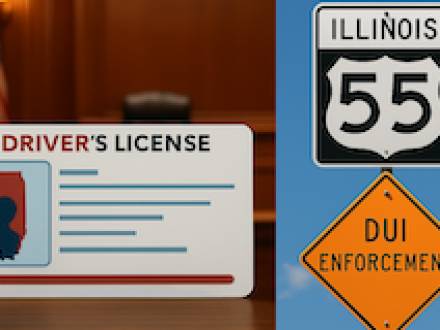 If you've been convicted of a DUI in Joliet or Will County, Illinois, one of the most pressing concerns is getting your driver's license back. DUI revocations in Illinois aren't automatic lifts after time served—they require a structured process involving hearings, evaluations, and compliance with state laws. As a seasoned Joliet DUI lawyer with over 20 years of experience, including time as a former Will County prosecutor, I've helped countless clients navigate Illinois driver's license reinstatement after DUI. In this 2025 guide, we'll break down the steps, requirements, and tips to avoid common pitfalls. Whether you're dealing with a first-time offense or multiple DUIs, understanding the process can make all the difference in reclaiming your driving privileges safely and legally.
If you've been convicted of a DUI in Joliet or Will County, Illinois, one of the most pressing concerns is getting your driver's license back. DUI revocations in Illinois aren't automatic lifts after time served—they require a structured process involving hearings, evaluations, and compliance with state laws. As a seasoned Joliet DUI lawyer with over 20 years of experience, including time as a former Will County prosecutor, I've helped countless clients navigate Illinois driver's license reinstatement after DUI. In this 2025 guide, we'll break down the steps, requirements, and tips to avoid common pitfalls. Whether you're dealing with a first-time offense or multiple DUIs, understanding the process can make all the difference in reclaiming your driving privileges safely and legally.
Understanding DUI Revocation in Illinois
In Illinois, a DUI conviction leads to mandatory license revocation under 625 ILCS 5/6-205. This isn't a suspension that ends on its own; revocation means your driving privileges are completely removed until you successfully petition for reinstatement through the Illinois Secretary of State (SOS). Factors like your blood alcohol content (BAC), prior offenses, and whether the DUI involved injury or fatality influence the revocation length and reinstatement eligibility.
Defending Against Domestic Battery Charges in Illinois: Rights and Strategies
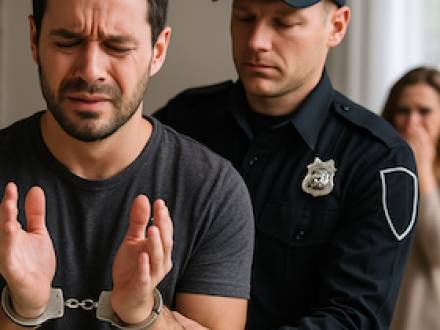 Domestic battery charges in Illinois can arise from heated family disputes but carry severe penalties that impact your freedom, family, and future. At Zaremba Law Office, serving Will County, Joliet, and surrounding areas, we provide aggressive criminal defense with over 20 years of legal experience. Jack L. Zaremba, a former prosecutor, specializes in protecting clients' rights in domestic battery cases, helping achieve dismissals, reductions, or acquittals. This blog post explores domestic battery laws, defenses, and consequences.
Domestic battery charges in Illinois can arise from heated family disputes but carry severe penalties that impact your freedom, family, and future. At Zaremba Law Office, serving Will County, Joliet, and surrounding areas, we provide aggressive criminal defense with over 20 years of legal experience. Jack L. Zaremba, a former prosecutor, specializes in protecting clients' rights in domestic battery cases, helping achieve dismissals, reductions, or acquittals. This blog post explores domestic battery laws, defenses, and consequences.
What is Domestic Battery in Illinois?
Domestic battery in Illinois is defined as causing bodily harm or making insulting/provoking physical contact with a family or household member, including spouses, partners, children, or roommates (720 ILCS 5/12-3.2). It's a Class A misdemeanor for first offenses without injury, punishable by up to 1 year in jail and fines up to $2,500. Aggravated domestic battery, involving great bodily harm, weapons, or strangulation, escalates to a Class 2 felony with 3-7 years prison and fines up to $25,000. In Will County courts like Joliet, charges often stem from 911 calls or visible injuries, but lack of evidence or witness recantations can lead to strong defenses. Mandatory arrest policies mean quick action is needed to build a case.
Understanding Criminal Trespass in Illinois: Defenses and Penalties | Zaremba Law Office
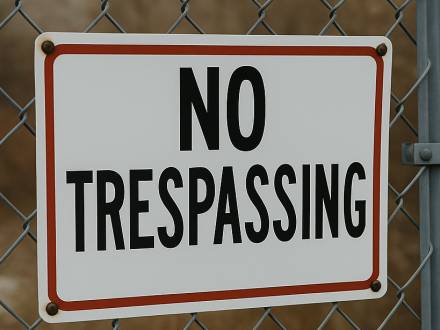 Criminal trespass charges in Illinois can arise from seemingly minor incidents but carry serious consequences, including fines, jail time, and a criminal record. At **Zaremba Law Office**, serving Will County, Joliet, and surrounding areas, we're committed to defending clients against these allegations with over 20 years of legal experience. Jack L. Zaremba specializes in criminal defense, helping navigate trespass cases to achieve dismissals or reductions. This blog post explores criminal trespass laws in Illinois, common defenses, and penalties.
Criminal trespass charges in Illinois can arise from seemingly minor incidents but carry serious consequences, including fines, jail time, and a criminal record. At **Zaremba Law Office**, serving Will County, Joliet, and surrounding areas, we're committed to defending clients against these allegations with over 20 years of legal experience. Jack L. Zaremba specializes in criminal defense, helping navigate trespass cases to achieve dismissals or reductions. This blog post explores criminal trespass laws in Illinois, common defenses, and penalties.
What Is Criminal Trespass in Illinois?
Criminal trespass in Illinois occurs when someone knowingly enters or remains on property without permission, including land, buildings, or vehicles. It's typically a Class B misdemeanor for first offenses, punishable by up to 6 months in jail and fines up to $1,500. Aggravated trespass, such as entering a school, residence, or using force, escalates to a Class A misdemeanor or felony with up to 1 year in jail or 1-3 years in prison. In Will County areas like Joliet and Plainfield, charges often stem from disputes, misunderstandings, or unauthorized entry to private property. Key elements include "knowingly" acting without authority—proving lack of intent can be a strong defense.
Understanding Probation Violations in Joliet Illinois
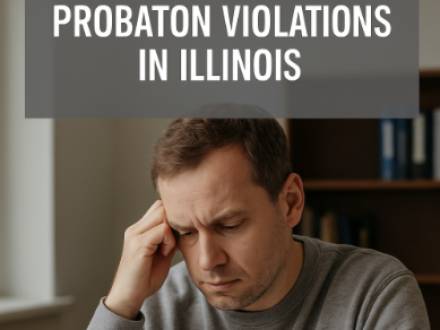 If you're on probation in Illinois and facing allegations of a violation, the stakes are high, potentially leading to revocation and serving your original sentence. At Zaremba Law Office, serving Will County, Joliet, and surrounding areas, we're dedicated to defending clients against probation violations and protecting their freedom. With over 20 years of legal experience, Jack L. Zaremba specializes in criminal defense, helping navigate these complex cases to achieve the best possible outcomes. This blog post explores probation violations in Illinois, common causes, penalties, and defense options.
If you're on probation in Illinois and facing allegations of a violation, the stakes are high, potentially leading to revocation and serving your original sentence. At Zaremba Law Office, serving Will County, Joliet, and surrounding areas, we're dedicated to defending clients against probation violations and protecting their freedom. With over 20 years of legal experience, Jack L. Zaremba specializes in criminal defense, helping navigate these complex cases to achieve the best possible outcomes. This blog post explores probation violations in Illinois, common causes, penalties, and defense options.
What Constitutes a Probation Violation in Illinois?
Probation in Illinois is a court-ordered alternative to incarceration, requiring compliance with specific conditions like regular check-ins, drug testing, community service, or avoiding new offenses. A violation occurs when you fail to meet these terms, such as missing a meeting with your probation officer, failing a drug test, or committing a new crime. In Will County courts, including Joliet, violations are classified as technical (minor, like missing a curfew) or substantive (serious, like a new arrest). The state must prove the violation by a preponderance of evidence, not beyond reasonable doubt. Common triggers include positive drug tests, failure to complete treatment programs, or contact with prohibited individuals. Understanding these can help prevent issues, but if accused, immediate legal action is crucial.
Understanding Your Rights During a Police Stop in Joliet Illinois | Zaremba Law
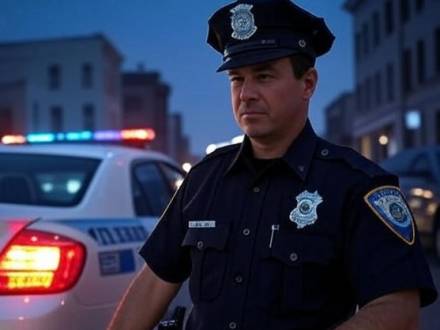 If you've ever been pulled over by police in Illinois, knowing your rights can make all the difference in protecting yourself from potential violations or escalations. At Zaremba Law, serving Will County, Joliet, and surrounding areas, we're dedicated to criminal defense and ensuring clients understand their legal protections during encounters with law enforcement. This blog post breaks down your rights during a police stop, common pitfalls, and how our experienced team can help if things go wrong.
If you've ever been pulled over by police in Illinois, knowing your rights can make all the difference in protecting yourself from potential violations or escalations. At Zaremba Law, serving Will County, Joliet, and surrounding areas, we're dedicated to criminal defense and ensuring clients understand their legal protections during encounters with law enforcement. This blog post breaks down your rights during a police stop, common pitfalls, and how our experienced team can help if things go wrong.
What Are Your Rights During a Police Stop in Illinois?
In Illinois, you have constitutional rights under the Fourth, Fifth, and Sixth Amendments during a police stop. You must provide your driver's license, registration, and proof of insurance if requested, but you have the right to remain silent beyond that—avoid answering questions about where you're going or what you've been doing. Police can order you to exit the vehicle for safety, but you don't have to consent to a search of your person, vehicle, or belongings without a warrant, though they may conduct a pat-down if they suspect a weapon. You can record the interaction as long as it doesn't interfere, and the stop should not last longer than necessary to address the reason for the pull-over, such as a traffic violation.
Understanding Illinois House Bill 2658: Potential Changes to Restricted Driving Permits for DUI Convictions
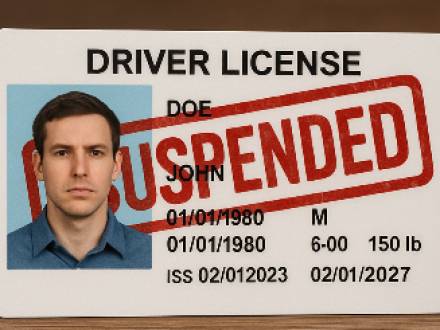 If you're facing a DUI charge in Illinois, staying informed about legislative changes can make a significant difference in protecting your driving privileges. One such development is Illinois House Bill 2658 (HB2658), which aims to amend the Illinois Vehicle Code to provide more flexible options for restricted driving permits (RDPs) and informal hearings for license suspensions or revocations. As a criminal defense and driver's license reinstatement attorney in Will County, Joliet, Illinois, I've seen how these laws directly impact clients' lives. In this blog post, we'll break down what HB2658 entails, its current status, and what it could mean for those dealing with DUI-related license issues. Whether you're searching for "Illinois restricted driving permit DUI" or "driver's license reinstatement after DUI," understanding this bill is crucial.
If you're facing a DUI charge in Illinois, staying informed about legislative changes can make a significant difference in protecting your driving privileges. One such development is Illinois House Bill 2658 (HB2658), which aims to amend the Illinois Vehicle Code to provide more flexible options for restricted driving permits (RDPs) and informal hearings for license suspensions or revocations. As a criminal defense and driver's license reinstatement attorney in Will County, Joliet, Illinois, I've seen how these laws directly impact clients' lives. In this blog post, we'll break down what HB2658 entails, its current status, and what it could mean for those dealing with DUI-related license issues. Whether you're searching for "Illinois restricted driving permit DUI" or "driver's license reinstatement after DUI," understanding this bill is crucial.
What is Illinois House Bill 2658?
HB2658, introduced in the 104th General Assembly, proposes several key amendments to the Illinois Vehicle Code to ease the process for individuals with suspended, revoked, or denied licenses, particularly those stemming from DUI convictions. The bill allows people to request informal hearings at a Secretary of State driver services facility for issues related to licenses, permits, registrations, or titles. More notably, it expands eligibility for restricted driving permits. For convictions involving alcohol or drugs as an element of the offense, the Secretary of State could issue an RDP allowing driving up to 6 days a week, for 12 hours per day, within a 200-mile radius of the driver's residence—for any legal purpose, provided an ignition interlock device (IID) is installed.
Understanding Moving Violations in Illinois: Protect Your Driver’s License
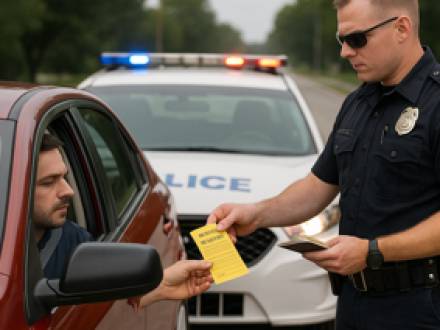 If you’re a driver in Illinois, understanding what constitutes a moving violation is crucial for maintaining a clean driving record and avoiding penalties like fines, license suspension, or increased insurance rates. At the Law Office of Jack L. Zaremba, we’re here to guide you through the legal complexities of traffic violations and help protect your driving privileges. In this blog post, we’ll break down what a moving violation is in Illinois, how it impacts your driver’s license, and how our experienced attorneys can assist you.
If you’re a driver in Illinois, understanding what constitutes a moving violation is crucial for maintaining a clean driving record and avoiding penalties like fines, license suspension, or increased insurance rates. At the Law Office of Jack L. Zaremba, we’re here to guide you through the legal complexities of traffic violations and help protect your driving privileges. In this blog post, we’ll break down what a moving violation is in Illinois, how it impacts your driver’s license, and how our experienced attorneys can assist you.
What is a Moving Violation in Illinois?
In Illinois, a moving violation is a traffic offense that occurs when a vehicle is in motion and the driver violates traffic laws. These violations are reported to the Illinois Secretary of State and can result in points being added to your driver’s license. Accumulating too many points within a specific period can lead to license suspension or revocation.

















